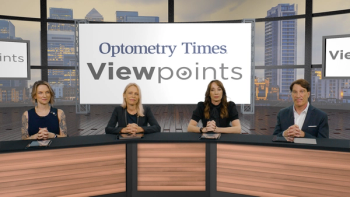
VEW 2022: Concussion management with Dr. Mena
Vitto Mena, Jr., OD, MS, shares highlights from his VEW 2022 presentation, "Sports EYEllustrated: keep your head in the game."
Vitto Mena, Jr., OD, MS, advanced clinical director with Special Olympics, and international sports vision association member, as well as the sports vision director with Optical Academy, sat down with Optometry Times® editor Kassi Jackson to share highlights from his presentation, "Sports EYEllustrated: keep your head in the game," which he presented during this year's Vision Expo West in Las Vegas.
This transcript has been lightly edited for clarity:
Jackson:
Hi everyone. I'm joined today by Dr. Vitto Mena, advanced clinical director with Special Olympics and international sports division association member, as well as the sports division director with Optical Academy.
He's here to share highlights from his discussion titled, "Sports EYEllustrated: keep your head in the game," which he's presenting during this year's Vision Expo West in Las Vegas.
Thank you for being here, Dr. Mena. Would you please just share with us the key takeaways from your presentation?
Mena:
Sure. So with Sports EYEllustrated, the take home message that I want to give to the audience is that a lot of times when we think of concussions, we're thinking about sports-related concussions. And the number 1 reason concussions occur is actually a motor vehicle accident.
And sometimes even if you're in your home and you slip in your kitchen, and you bang your head on the counter, people can suffer what's called a mild traumatic brain injury. And what happens is, a lot of times when you suffer from a mild traumatic brain injury, usually symptoms can resolve themselves within 7 to 10 days.
However, there are some patients that they just have symptoms that keep lingering for a month, 3 months, years, and a lot of these these patients have complaints. They go to their primary care doctors, they go to other doctors and when it comes to concussion, number 1, they gotta rest for at least a week. So no sports, no electronics, none of that for at least a week. Sometimes you could even do it for a month of not doing anything.
Because what happens is they have convergence, insufficiency, accommodated insufficiency; so not only do they have trouble going back to their sport, but they have trouble when they're in school and with learning. And so just maybe making a small change to their prescription and their glasses can make a world of difference. Sometimes it could be a light sensitivity issue, and just putting on some sunglasses to help minimize that. Other times it could be a nutritional deficit that now they can't absorb the nutrients that they need.
And so it really takes a team when it comes to concussion management. It's not just really a one size fits all approach.
Newsletter
Want more insights like this? Subscribe to Optometry Times and get clinical pearls and practice tips delivered straight to your inbox.










































